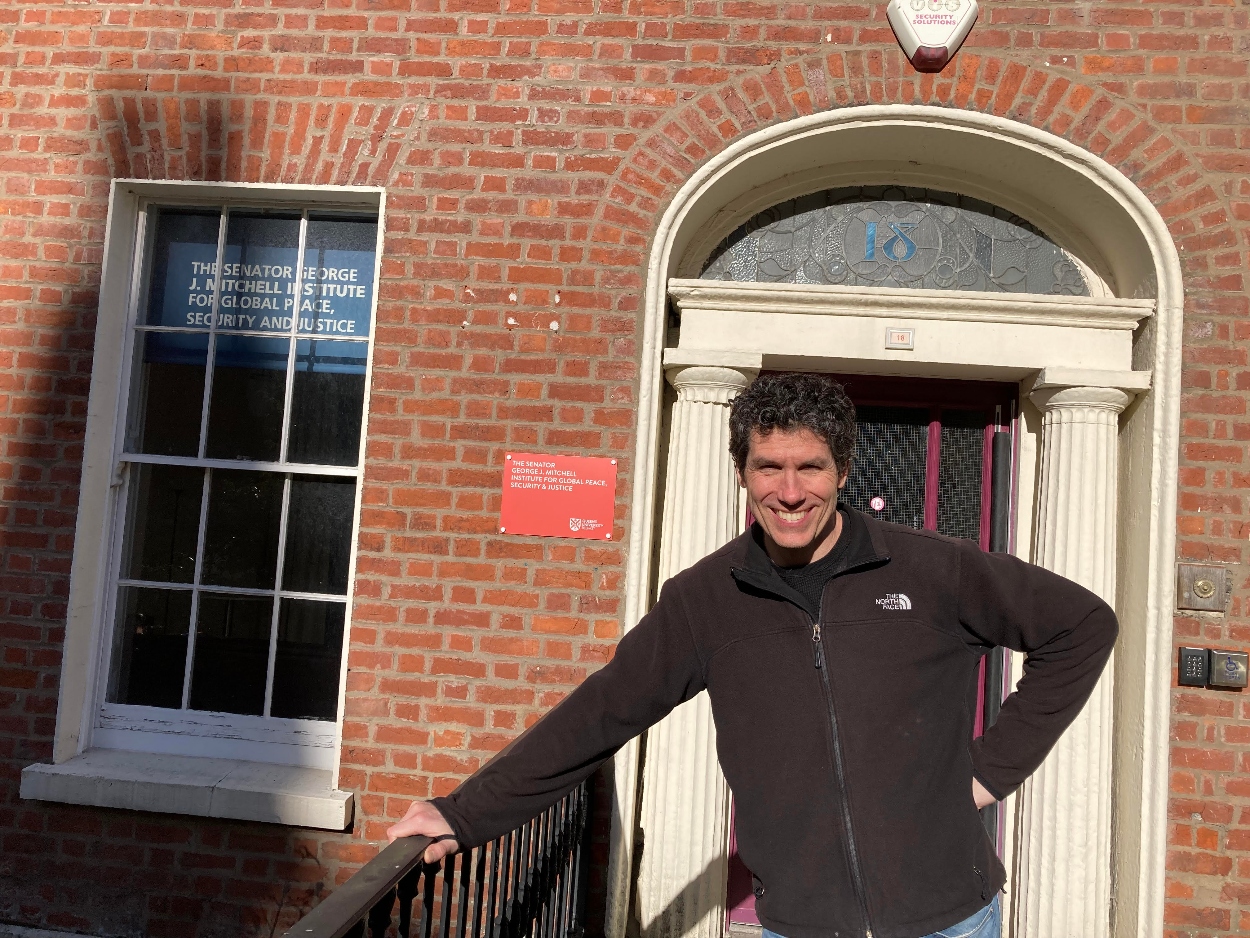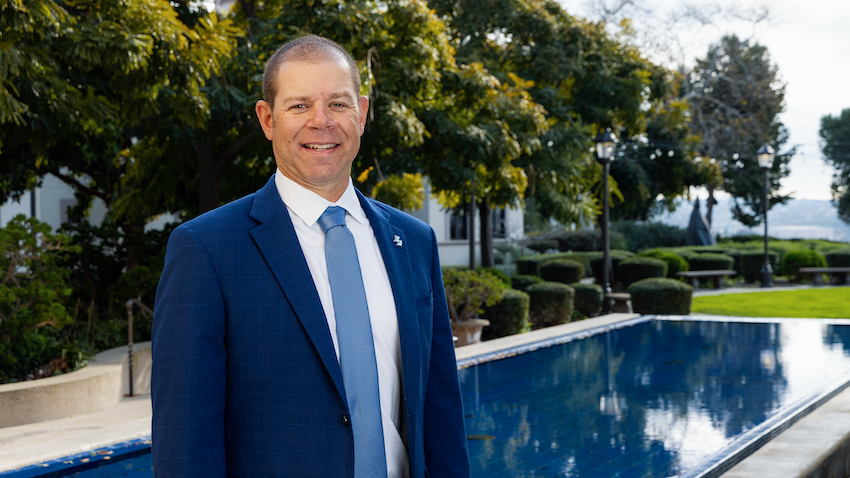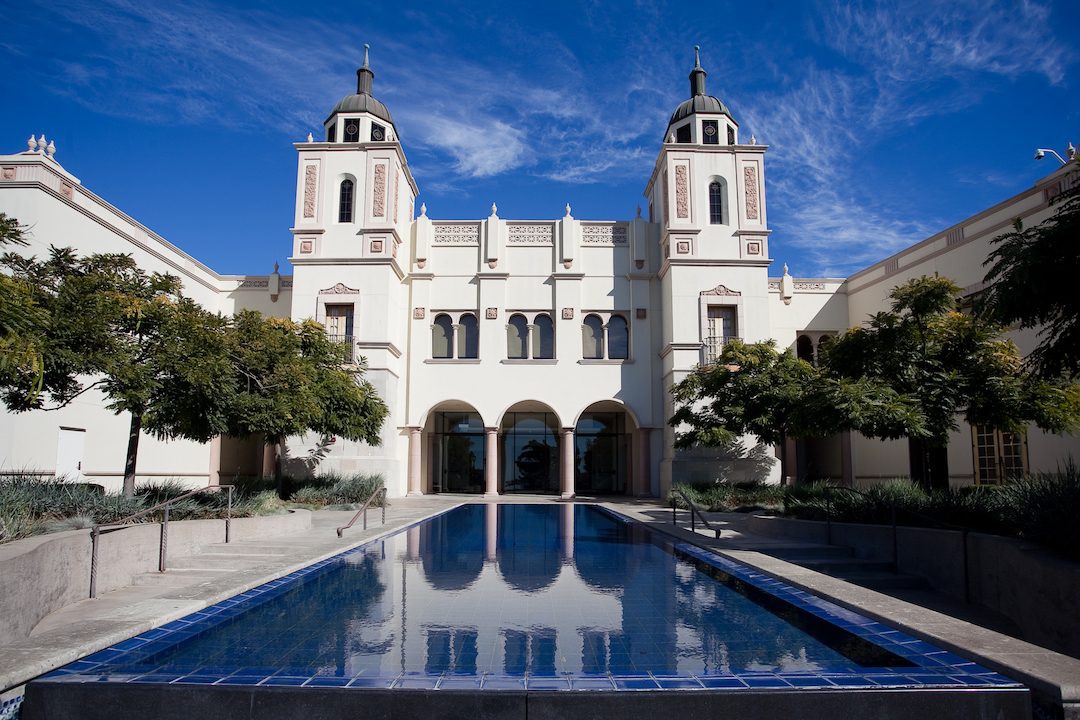Career Technical Education Study Maps
Groundbreaking Effort Details Region’s Share of State Funding
The University of San Diego’s Center for Educational Policy and Law today announced that local educational, business, community, and workforce-development leaders will convene Aug. 13 for a press conference and summit to launch a Web-based Career and Technical Education (CTE) Funding Map that details the approximately $2.5 billion in CTE funding available to state public schools, charter schools, and community colleges. The event will be conducted at 10 a.m. at the San Diego County Office of Education, rooms 401-402.
Scott Himelstein, director of the center and former Secretary of Education for the State of California, said of the mapping project, “We surveyed key stakeholders -- including public high school principals, superintendents, community college chancellors and other local CTE professionals -- about their understanding of funding programs and to what extent they actively seek such funding. We found that CTE is funded through a fragmented maze of programs and funding streams. Our goal is to ensure the region is actively seeking funding for Career and Technical Education. Based on eight programs examined in the report, San Diego is getting less than expected from four of the funding sources. The region appears to be getting its fair share of ROP funding, which is the largest pool of dollars.”
The CTE funding map is the first project of its kind and gives local educators and CTE professionals a centralized view of funding sources, amounts, and application information for all education levels. It is based on a recent report by the center titled “A Study of Career and Technical Education Programs and Funding for California and San Diego County” that compares available CTE funding streams to how much funding actually reaches the county. The project, including the study, the report and the funding map, have been funded by the Girard Foundation.
Participating in the Summit will be business and education leaders, policy makers, and CTE professionals from throughout the county. Besides the university, organizations joining to launch and promote the effort include the San Diego Community College District, San Diego Regional Chamber of Commerce, the San Diego County Office of Education, and the San Diego Workforce Partnership. Here is what the organizations’ leaders have to say about the center’s efforts to study and map CTE funding:
Constance M. Carroll, Ph. D., Chancellor of the San Diego Community College District: “As one of the region’s major providers of such education and training, we appreciate the visibility this study brings to available funding in a time when budgets are dwindling.”
Dr. Randolph Ward, San Diego County Superintendent of Schools: “This is an exciting tool that can be used by educators to build and expand CTE for our students. We welcome efforts to ease the challenges involved in locating and securing funds from various sources.”
Ruben Barrales, President and CEO of the San Diego Regional Chamber of Commerce: “The results of this study and the development of the funding map expand our ability to build partnerships between business and education, which ultimately benefits the regional workforce, employers and the economy.”
Mark Cafferty, President and CEO, San Diego Workforce Partnership: “Identifying and tapping into these funding sources is a critical component of delivering the kinds of programs that will result in meaningful work for students who require an increasingly technical education to excel in almost any profession.”
Key Findings from A Study of Career and Technical Education Programs and Funding for California and San Diego County
Among the CTE report’s key findings are:
While many educational programs face drastic cuts, funding targeted to CTE has increased 18 percent in the past two years.
There is a great need for simplified access to CTE funding information, such as sources, amounts, program criteria, and the application process.
Districts and schools that are most successful in getting CTE funding are those with dedicated staff.
Of the $2.5 billion in CTE funding available to state public schools, charter schools, and community colleges in 2007, the county’s share should fall between 8 and 8.5 percent based on population.
Based on eight funding programs examined in the report, the county received less than warranted in four areas and more in three.
About The Center for Education Policy and Law
The University of San Diego’s Center for Education Policy and Law is jointly sponsored by the USD School of Law and the School of Leadership and Education Sciences. Established by a grant from the William D. Lynch Foundation in 2007, its mission is to foster better linkage between educational research, policymaking, and practice by commissioned empirical and legal research on education policy issues at the local and state levels; enhancing communication between education leaders and local and state-level policymakers; and facilitating understanding among USD law students and education graduate students about the policymaking process through courses, internships, and research opportunities.
About the Girard Foundation
Girard Foundation is a private, family foundation established in 1986. Its mission is to improve K-12 education in San Diego County, with the goal of producing better student outcomes. The Foundation is particularly concerned about the need to better prepare all students for post-secondary education and careers.
###
About the University of San Diego
Strengthened by the Catholic intellectual tradition, we confront humanity’s challenges by fostering peace, working for justice and leading with love. With more than 8,000 students from 75 countries and 44 states, USD is the youngest independent institution on the U.S. News & World Report list of top 100 universities in the United States. USD’s eight academic divisions include the College of Arts and Sciences, the Knauss School of Business, the Shiley-Marcos School of Engineering, the School of Law, the School of Leadership and Education Sciences, the Hahn School of Nursing and Health Science, the Joan B. Kroc School of Peace Studies, and the Division of Professional and Continuing Education. In 2021, USD was named a “Laudato Si’ University” by the Vatican with a seven-year commitment to address humanity’s urgent challenges by working together to take care of our common home.



